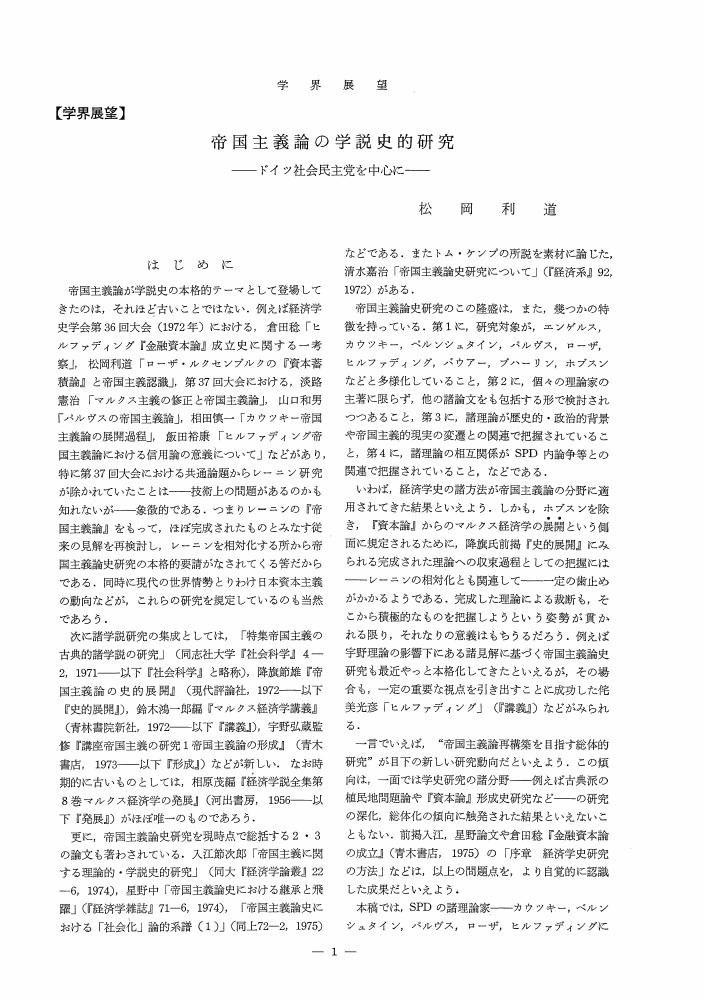2 0 0 0 IR 寒川鼠骨の写生文・日記文の捉え方
- 著者
- 岡 利道 広島文教女子大学人間科学部
- 出版者
- 全国大学国語教育学会
- 雑誌
- 全国大学国語教育学会国語科教育研究:大会研究発表要旨集 (ISSN:24321753)
- 巻号頁・発行日
- vol.104, pp.32-35, 2003
1 0 0 0 IR 大和田健樹の作文教授観
- 著者
- 岡 利道
- 出版者
- 広島文教女子大学教育学会
- 雑誌
- 広島文教教育 (ISSN:09138870)
- 巻号頁・発行日
- no.10, pp.1-16, 1996-03-15
1 0 0 0 OA 近代世界システム論と歴史認識の転換
- 著者
- 松岡 利道
- 出版者
- The Japanese Society for the History of Economic Thought
- 雑誌
- 経済学史学会年報 (ISSN:04534786)
- 巻号頁・発行日
- vol.36, no.36, pp.40-51, 1998 (Released:2010-08-05)
- 参考文献数
- 25
I. Wallerstein advanced a theoretical and historical account of the origins and structure of the modern world-system. There are two important points in his theory. First, he criticized the traditional theory of the state. In the modern world-system theory, he holds, the subject of analysis is not the nation-state but inter-state relations. Second, he denied the possibility of national development in the modern world-system. In his view, the constituent institutions in the system such as nation-states cannot develop independently, but rather merely change their economic and political position within the system.World-systems analysis emerged as a critique of current social science, and while there exist some theoretical contradictions to resolve in this type of analysis, it is concluded that it has raised important questions for current social science to grapple with. In Race, Nation, Class by Wallerstein and Balibar, we find a promising direction in which to develop the modern world-system theory.
- 著者
- 松岡 利道
- 出版者
- The Japanese Society for the History of Economic Thought
- 雑誌
- 経済学史学会年報 (ISSN:04534786)
- 巻号頁・発行日
- vol.27, no.27, pp.63-64, 1989 (Released:2010-08-05)
1 0 0 0 OA 帝国主義論の学説史的研究
- 著者
- 松岡 利道
- 出版者
- The Japanese Society for the History of Economic Thought
- 雑誌
- 経済学史学会年報 (ISSN:04534786)
- 巻号頁・発行日
- vol.13, no.13, pp.1-12, 1975 (Released:2010-08-05)

